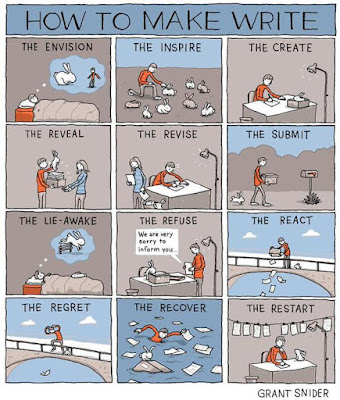Lots of requests from last week, thanks to you who’ve answered so far. However. I’m still gathering my thoughts on how to answer some of them. Plus, I’d already finished most of this, sooooo…
I wanted to take this week to go back to something I’ve talked about before. Flashbacks. I’ve encountered a few books recently that lean heavily on this device and… well, most of them weren’t good. One of them was good to a point, but after that point it quickly tipped into frustrating, and from there to just plain bad.
Why?
Well, let me bring up a more important question for us all to ponder while I babble on. Why does my story use flashbacks? What purpose do they serve within the story?
Let me give an example.
 I read a novel recently about a Black Widow-esque assassin who’d gone through a nightmarish bout of training and indoctrination before being set loose on the world and her assorted targets. Its chapters alternated between present day and the past. The “now” of the story was her carrying out a series of missions while the “then” was how she was recruited and trained.
I read a novel recently about a Black Widow-esque assassin who’d gone through a nightmarish bout of training and indoctrination before being set loose on the world and her assorted targets. Its chapters alternated between present day and the past. The “now” of the story was her carrying out a series of missions while the “then” was how she was recruited and trained.
Except…
The two plot lines didn’t make linear sense. Y’see, for the first two-thirds of the book, our assassin (let’s call her Phoebe) was hunting down one target, finishing her assignment, and moving onto the next one. It was kind of a Bond movie setup. But she was paranoid-nervous the whole time. Was someone watching her? Hunting her while she hunted down her targets? She’d built up a lot of enemies over the years. Was one of them lining up on the base of her skull right now?
Meanwhile, in the parallel past plotline (say that four times fast…), we saw how she was recruited out of the foster system after a series of schoolyard fights. Her brutal apprenticeship. Her first kill. Her early missions.
And then, the last third of the book rolled around…
In the final “then” sections, Phoebe met Nadia, one of her peers (and, it’s vaguely hinted, maybe even a long-ago love interest or at least regular friend-with-benefits). And it turns out Nadia is a traitor, a double agent who Phoebe exposes and they end up in a huge battle that rages through a shopping mall (again, really cool). In the end Nadia gets away, but swears to return and kill Phoebe for exposing her. And from this page on, in the “now” sections, Phoebe wonders if it’s Nadia out there waiting to kill her. Maybe Nadia has a rifle aimed at her head. Nadia, the only one she ever let get away, could be right around that corner.
See the problem here?
As the “then” storyline progressed, it became clear that the “now” timeline was cheating and tweaking things to create dramatic moments that wouldn’t exist if the two lines were being honest. The author forgot that all of “then” happens before every minute of “now”—the order they were telling the story in didn’t matter. The author tried to set this up as paranoia in the “now” sections, except it turns out Phoebe was completely justified in feeling this way. She knew all along someone was actually hunting her. Hell, for the first two-thirds of the book she knew the name of the person hunting her, a person it’s strongly implied she’d been intimate with, and she never thought of Nadia once—even though most of the story is from her point of view. She just had vague thoughts about “a possible threat” or “maybe another operative” until this convenient point in the story.
This is the type of thing people are talking about when they say flashbacks don’t work. Well, okay, those people are kind of stupid. Flashbacks do work and you should use them… if they make sense within the story’s structure.
From a linear point of view, does my story still make sense with this flashback? Or flashbacks, as the case may be. What happens if I rearrange everything so all the chapters are in linear order?
If a lot of my character motivations or behaviors become murky, it means I’ve got a problem. I don’t have a good thread for my character, and their reactions are based off my narrative, not their linear experiences.
If large parts of my story now drag, that’s a sign I’ve got a structure problem. The flashbacks were the only thing creating tension. It means my story is really either in the past or the present. I’m just killing time and eating up word count in the other setting.
If I put everything in order and my story works better—it reads smoother, its easier to follow, and the plot moves faster—then that takes me back to those early questions. Why does my story use flashbacks? What purpose do they serve?
Don’t laugh at that last one. I’ve seen people who turned their stories into a mess of non-linear flashbacks that served no purpose whatsoever, and they ruined an interesting story by doing it. It happens more often than you’d think.
Like any element in my story, I can’t be throwing in flashbacks for no reason. Just because something worked in that story doesn’t mean it’s going to work in my story—especially if I don’t understand whyit worked.
Do cool stuff in your stories. But have a reason for doing it. A real, honest reason that doesn’t cheat or frustrate your readers
Next time…
Well, I actually got a fair number of requests and questions last time, so here’s what I was thinking. I’m going to pluck out the one or two that would work as full posts and we’ll probably see them in the next three or four weeks. But next time I’m going to do a whole post of quick topics that I can address in four or five paragraphs (and maybe a link or three). So if you have something writing-related you’d like me to address, mention it down in the comments and it’ll end up on one list or the other.
And until then… go write.







